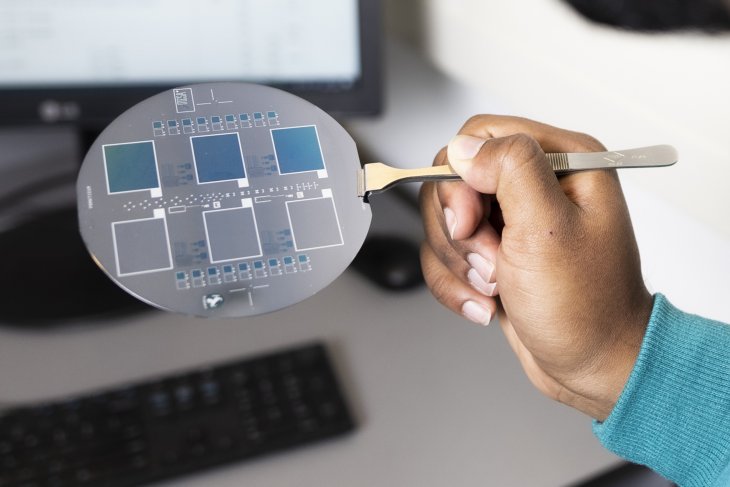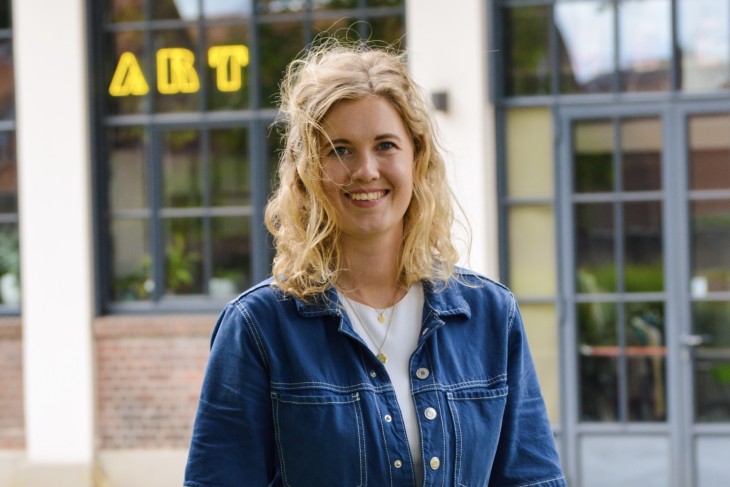Chips are the building blocks of all modern electronic devices: from consumer electronics like smartphones to systems used in cars, medical equipment, modern production processes and security systems.
Chiptech in Europe
Innovations in this field are rapidly unfolding, so now is an excellent time to start a career in the semiconductor industry. Especially in Europe and the Netherlands, there is a strong focus on boosting chip production and research, supported by initiatives like the European Chips Act to strengthen the region’s position in the global semiconductor market.
Master's in chiptech
But chiptech isn’t one single discipline. It draws on a wide range of expertise: from materials science to embedded software, from circuit design to sustainable manufacturing.
That also means there’s no single path into the field. Whether you’re interested in how electrons move through nanoscale structures, how chips interact with real-world sensors, or how you can make devices more energy efficient – the University of Twente offers a wide range of master’s programmes that can help you get there.
- Applied Physics
- Electrical Engineering
- Chemical Science & Engineering
- Nanotechnology
- Embedded Systems
- Computer Science
- Mechanical Engineering
- Robotics
- Industrial Design Engineering
- Sustainable Energy Technology
1. Applied Physics
Semiconductors rely on core physics principles like electricity, magnetism, and quantum behaviour. If you want to understand and apply the fundamental mechanisms behind chip technology, then physics is an excellent starting point. In the Master’s in Applied Physics at the University of Twente, you will join leading research in a world-renowned physics department. It’s actually the highest-rated applied physics programme in the Netherlands!
Within the programme, there is plenty of room to build your own expertise – expertise that is highly needed within the chip tech industry. You can specialise in the field of applied nanophotonics, materials science, physics of fluids or quantum physics.
2. Electrical Engineering
Electrical engineers are the driving force behind the design, development, and optimisation of the technologies that make modern chips possible. From fabricating nanoscale transistors and developing high-speed electric circuits, to ensuring energy efficiency and system reliability, electrical engineers are involved at every stage of the chip lifecycle.
The Master’s in Electrical Engineering at the University of Twente will prepare you perfectly for a career in the semiconductor industry. Our research groups work closely together with high-tech companies, and as a student, you will be able to participate in new research projects. There are some unique specialisations to choose from that are highly relevant to the chip tech industry. For instance, you could specialise in areas like integrated circuit design, semiconductor devices and technology, power electronics, nanoelectronics, or micro sensors and systems, amongst others.
3. Chemical Science & Engineering
The chemical aspect of chip production is often overlooked, yet it's crucial. Think, for example, of the chemical processes behind wafer fabrication, such as deposition, doping, and etching. Experts with a strong foundation in both chemistry and materials science are in high demand to help develop the next generation of chips: smaller, faster, and more energy-efficient.
The Master’s in Chemical Science & Engineering at the University of Twente gives you the opportunity to delve into the design, synthesis, and analysis of advanced materials used in semiconductor manufacturing. Courses such as Characterisation and Surfaces and Thin Layers provide in-depth insights into material properties and surface phenomena, essential for processes like deposition, doping, and etching.
4. Nanotechnology
Nanotechnology operates at the smallest scales — exactly where the cutting edge of chip innovation is happening. In this master’s programme, you’ll learn how to design, fabricate, and characterise materials and devices at the nanoscale. Thanks to the programme’s deep connections with the MESA+ Institute for Nanotechnology — one of Europe’s top research centres, you will have unique access to the NanoLab, including the cleanroom.
Whereas nanotechnology is usually part of a monodisciplinary programme, like applied physics or electrical engineering for example, the University of Twente is the only research university in the Netherlands that offers a Master’s in Nanotechnology that integrates all disciplines, from physics to chemistry and from electrical to biomedical engineering.
5. Embedded Systems
Chip technology requires engineers who understand the interaction between hardware and software. After all, chips don’t work in isolation—they need to communicate with other components, respond to real-world signals, and manage complex tasks in real time.
The Master’s in Embedded Systems at the University of Twente equips you with the skills to design and optimise embedded computing systems, covering both the hardware and software aspects. It covers topics such as system-on-chip design, real-time & embedded AI systems, embedded computer architecture, and dependable computing.
6. Computer Science
While not directly involved in chip fabrication, Computer Science is essential for making chips useful. Every chip needs software — whether it’s a phone processor, a control unit in a car, or an AI accelerator in a robot.
The Master’s in Computer Science at the University of Twente equips you with the skills to develop that software, from low-level embedded code and real-time systems to smart algorithms that run on complex hardware platforms. You’ll explore how to optimise performance, ensure security, and enable chips to interact smoothly with users and other devices, making you a key player in the software-hardware interface of chip technology.
7. Mechanical Engineering
Mechanical engineers play a role in chip technology in two important ways. On the one hand, they contribute to the design of ultra-precise machinery for the production of chips themselves — think of wafer stages, thermal management systems, and motion platforms in lithography machines. On the other hand, chip-based technologies are also needed for building complex mechanical systems, such as surgical robots, lab-on-chip devices, and autonomous vehicles.
If you want to contribute to the machinery, structures, products and production processes that rely on, as well as enable chip fabrication, then the Master’s in Mechanical Engineering at the University of Twente is an excellent starting point for your future career.
8. Robotics
More interested in the application of advanced chip technology, rather than fabricating chips yourself? If so, the Master’s in Robotics could be a great choice. Modern robotics is inseparable from chip technology. Sensors, actuators, real-time control units, and AI processors all rely on highly advanced chips and embedded systems.
The Master’s in Robotics at the University of Twente trains you to design and build intelligent systems where chip-based components are essential for sensing, computation, and control. While the focus is more on application than on chip design itself, this programme offers you great career prospects in high-tech industries.
9. Industrial Design Engineering
From smartwatches to medical devices, chip-powered products are becoming increasingly embedded in our daily lives. The Master’s in Industrial Design Engineering at the University of Twente focuses on designing these kinds of intelligent, interactive products, with an emphasis on usability, technology integration, and societal impact.
In this Master’s, and specifically in the specialisation in Emerging Technology Design, you can learn to apply new emerging chip technologies, like embedded systems, sensors or microcontrollers, in the design and development of new (or existing) products. With a strong focus on human-centred design, this programme can help you to bring chip technology to life in ways that are not just smart, but also meaningful and accessible.
10. Sustainable Energy Technology
Are you eager to use the latest advancements in chip-based technologies to optimise renewable energy systems and smart grids? Then you might want to consider studying the Master’s in Sustainable Energy Technology at the University of Twente.
Again, this is more an application-based master’s when it comes to chip technology, rather than learning how to fabricate and design chips yourself. You’ll learn how to integrate embedded systems, power electronics, and sensor technologies into renewable energy applications — from smart solar inverters and battery management systems to grid-interactive controllers and predictive energy algorithms.



